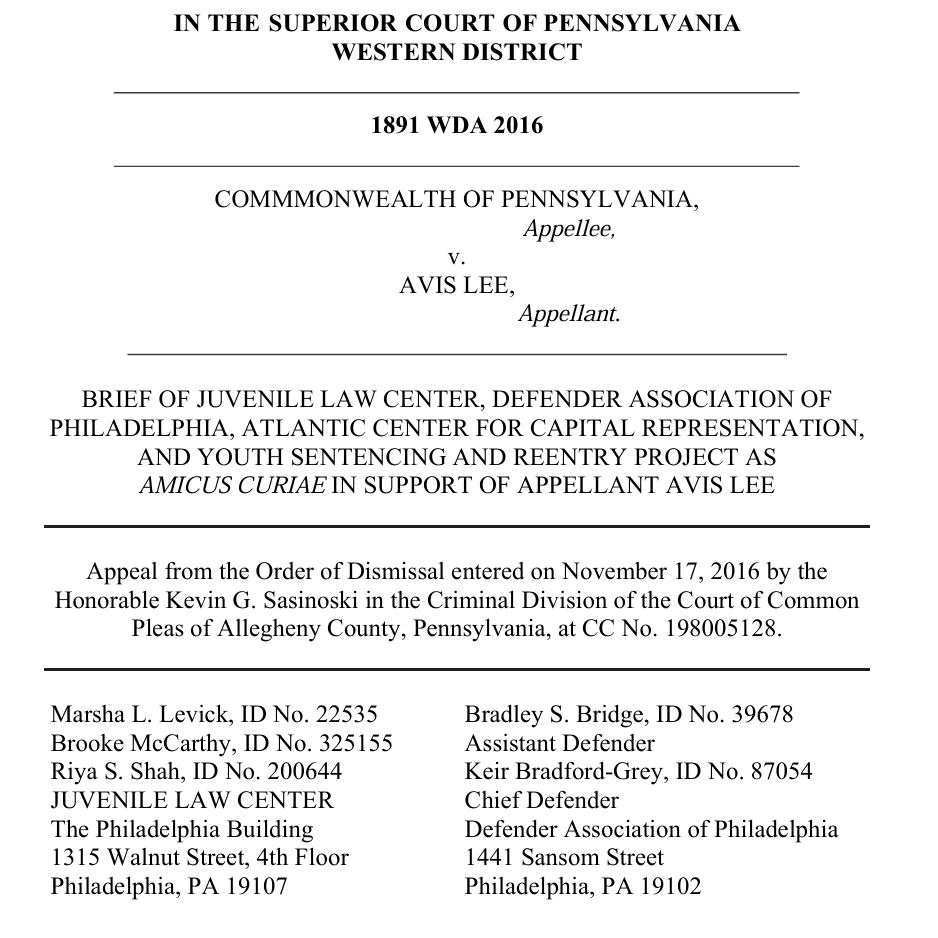
Summary of Argument
In Miller v. Alabama, the United States Supreme Court ruled mandatory life without parole sentences unconstitutional for juveniles convicted of homicide. The Court, relying on the same underlying scientific research used to bar the death penalty for juveniles, held that children were less culpable than their adult counterparts because of their immaturity, impetuosity, susceptibility to peer influence, and greater capacity for rehabilitation. Modern research now indicates that individuals retain these characteristics well into their twenties. As young adults possess the same juvenile characteristics that the Supreme Court has determined reduce culpability, mandatory life without parole sentences for this population are also disproportionate under the Eighth Amendment. There is no penological justification for condemning a young adult to die in prison when they have the same capacity for reform as their younger counterparts and will serve a disproportionately long sentence due to their young age. Since Pennsylvania’s murder statute does not allow for individualized sentencing that accounts for a young person’s attendant characteristics of youth and requires mandatory imposition of life without parole, it must be ruled unconstitutional as applied to young adults.